Before I started in the Howest teacher training department four years ago, I had been a teacher in secondary school for twenty years. Never in my career had I experienced such an inspiring and beautiful project as DLAB is.
I had already been involved in eTwinning and attended some meetings about using digital tools in education and digital learning. Before I got into the DLAB project, I had been using apps and webtools in my lessons several times and discovered the advantages of it. I could certainly empower my lessons with these tools, and motivate the children more.
When I was contacted and asked to join the DLAB project, I didn’t hesitate, because I saw it as a real opportunity to engage students and lecturers in a whole new approach of teaching and working together in one educational community. It turned out to be right.
From the start, it was clear we were going to do something great and exceptional. During the first two years, I got to know so many wonderful people: students, teachers and lecturers from Belgium, Norway, Denmark and the U.K. who were all together aiming at the same goal: to make a successful and inspiring project.
The success of the project is due to many aspects, such as the planning during the year: the coordinators’ meetings in September, the three project days in the following months and the MOOC-development in March-April are fixed moments agreed on quite early in which the content and activities are defined beforehand.
In the coordinators’ meetings we mainly make plans for the coming year, the digital playdates are inspiration and brainstorm sessions, during the project days the ideas for the projects are tested and worked out with pupils in classrooms and in the MOOC-weeks we collect our best materials to put in templates for the free online course.
At the end of May or the beginning of June, the MOOC runs and is open for everyone in the educational field. A Google+ community has been set up to gather ideas and reactions based on the materials we have worked out and collected in the MOOC.
The overall theme in the project is digital learning and the use of digital tools (which is also an important aspect of eTwinning) and each year, there is a different focus: outdoor learning (year 1), STEM to STEAM (year 2) and CLIL (year 3).
The DLAB project has proved to me that it is possible to cooperate on a transnational level and form one big community in which every member is on the same level: university (college) students and lecturers and teachers from primary and secondary schools. T
he students in the teacher training department gain a lot of skills and experience, such as language competence, digital learning, outdoor learning, STEAM (adding the Arts to STEM projects) and CLIL (Content Language Integrated Learning).
Of course, being part of a community makes that you can learn a lot from each other: we are inspired by new ideas from the different schools and combine it together in our projects. We use different tools to gather our materials: the website www.dlaberasmus.com, the eTwinning platform, Padlet, and Google+.
It is evident that one of the important parts of our project is communication. Of course, there are the coordinators’ meetings, digital playdates and the MOOC-weeks, when we are together in one of the partner countries.
Next to the planning and work on the project in these weeks, there are activities planned to explore the countries’ culture and nature, such as visiting interesting places, exhibitions, bike tours, field trips, … But also outside these weeks, we are in touch with each other by means of skype sessions and communication via our facebook pages: the general facebook page for information that is relevant in connection with the organization and planning and the social DLAB group for ideas and inspiration.
During the project days, the pupils also communicate with each other via Skype or Appear.in: they present themselves and their schools, talk about and showed the process and the result of the projects. A tweetbeam is set up during the day, on which the tweets of pupils, teachers, students and lecturers are projected in classrooms or other places in the school buildings.
We have shown we can cross boundaries in this project, not only the boundaries that may exist between the partner countries or the language barrier, but also the way to go further, to experiment, to try new things, to be innovative, to ‘boldly go where no one has gone before’.
In this project, I have the feeling the spirit of innovation is always present. And in DLAB, innovation and imagination are puzzled together: we invite artists, scientists and educators to get inspiration and go for our goals.
Ending with a quote from Albert Einstein and looking forward to the next DLAB year: ‘Imagination is everything. It’s the preview of life’s coming attractions’.
Frederik De Laere
Lecturer in geography
International Coordinator, Howest Education Department
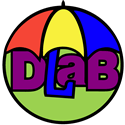
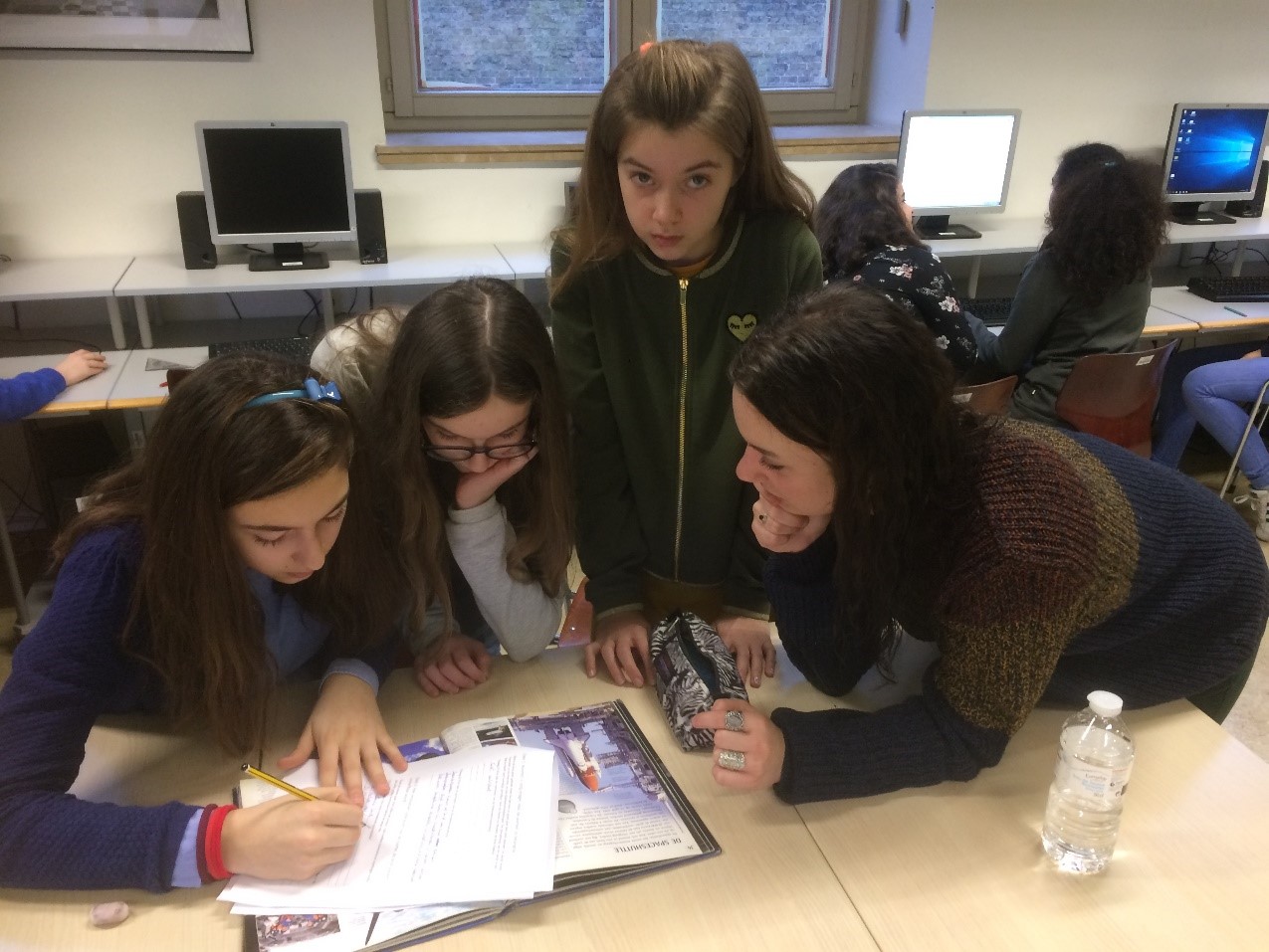
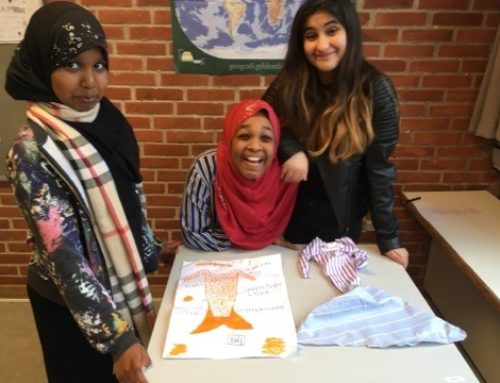
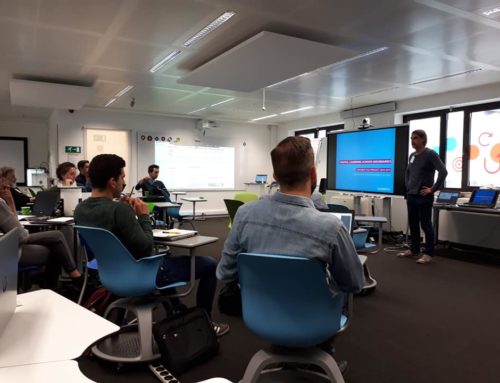
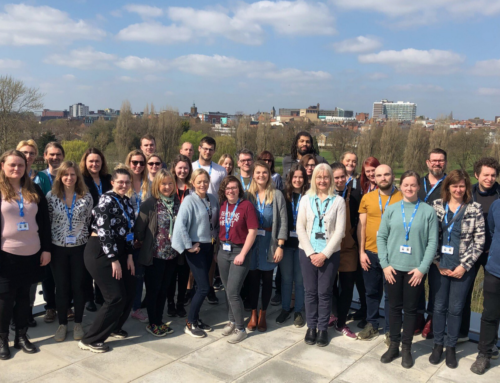
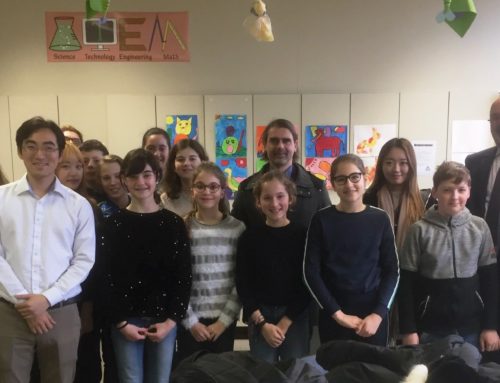
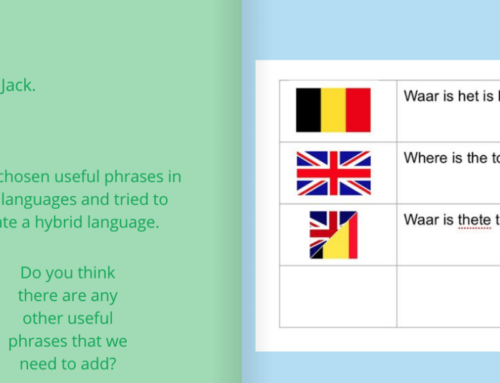
Leave A Comment
You must be logged in to post a comment.